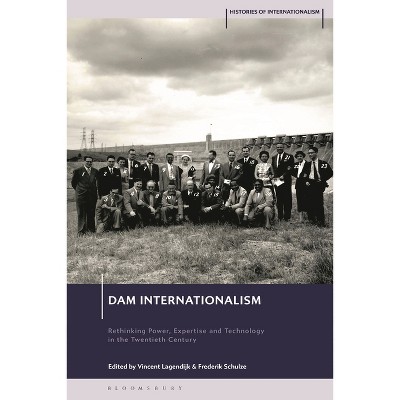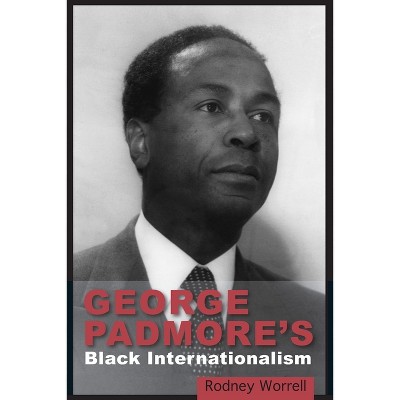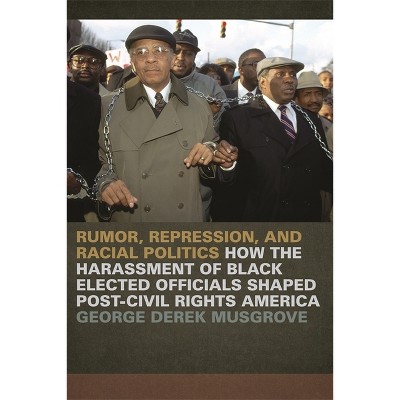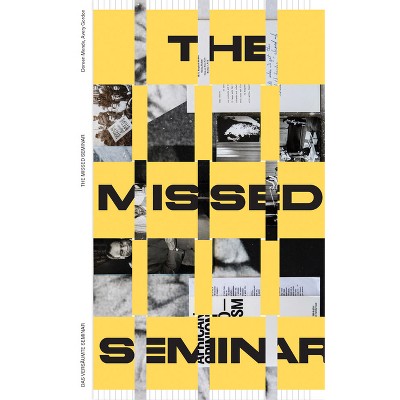Socialist Internationalism and the Gritty Politics of the Particular - (Histories of Internationalism) by Kristin Roth-Ey (Paperback)

$39.99 when purchased online
Target Online store #3991
About this item
Highlights
- This collection takes a case study approach to enter into and explore spaces of 'Second-Third World' interaction during the Cold War.
- About the Author: Kristin Roth-Ey is Associate Professor of Modern Russian History at the UCL School of Slavonic and Eastern European Studies, UK.
- 296 Pages
- History, World
- Series Name: Histories of Internationalism
Description
About the Book
A study into the spaces of 'Second-Third World' interactions during the Cold War to understand the complex social, cultural and political encounters between Second World countries and the Global South.Book Synopsis
This collection takes a case study approach to enter into and explore spaces of 'Second-Third World' interaction during the Cold War. From the dining halls of a university, to hospital wards, construction sites, military barracks, pubs and more, the chapters drop the scale down from the global to the particular to better see, understand and interpret the complex nature of these spaces.These ordinary spaces are examined to understand how they were conceived, constructed, shaped and reshaped by people over time. Many are physical places of encounter, while others are more abstract, embodying ideological goals. In exploring these spaces the contributors show how the Second and Third World actors understood them and connected them to ideas such as gender and space, the space of the nation, of the modern and of the self. Essentially, it seeks to unravel how these spaces between Second and Third Worlds worked, and what, if anything, was distinctive and consequential about them.
Second-Third World Spaces in the Cold War explores the ways in which these Second and Third World actors collaborated and clashed in these everyday spaces, and brings these multi-faceted, multi-actor histories to a vital centre ground.
Review Quotes
This brilliantly edited volume invites readers right into the military units, work sites, dorm rooms, and other tense spaces where socialist internationalism unfolded, revealing a welter of unexpected consequences: Korean orphans studying Czech folk songs, Polish faculty teaching British economic theory to Ghanaian university students, Romanian women seeking abortions in Libya, and more.
Margaret Litvin, Associate Professor of Arabic and Comparative Literature, Boston University, USA
This impressive new project sheds the tired binaries as it seeks to complicate the story of cold war encounters between the Second and Third worlds. I particularly appreciate the emphasis on cultural and social history through the exploration of the spaces that often remained unseen and unexamined, but which were in fact the sites of real human-to-human encounters. The contributors' attention to the mundane and the granular represents a welcome departure from the standard grand narratives of the Cold War.
Maxim Matusevich, Department of History, Seton Hall University, USA
About the Author
Kristin Roth-Ey is Associate Professor of Modern Russian History at the UCL School of Slavonic and Eastern European Studies, UK. She is the author of Moscow Prime Time: How the Soviet Union Built the Media Empire that Lost of the Cultural Cold War (2011). Her current research focuses on Soviet media and cultural diplomacy in the Third World during the Cold War.
Dimensions (Overall): 9.21 Inches (H) x 6.14 Inches (W) x .61 Inches (D)
Weight: .91 Pounds
Suggested Age: 22 Years and Up
Number of Pages: 296
Genre: History
Sub-Genre: World
Series Title: Histories of Internationalism
Publisher: Bloomsbury Publishing PLC
Format: Paperback
Author: Kristin Roth-Ey
Language: English
Street Date: October 31, 2024
TCIN: 94448492
UPC: 9781350302815
Item Number (DPCI): 247-04-5422
Origin: Made in the USA or Imported
Shipping details
Estimated ship dimensions: 0.61 inches length x 6.14 inches width x 9.21 inches height
Estimated ship weight: 0.91 pounds
We regret that this item cannot be shipped to PO Boxes.
This item cannot be shipped to the following locations: American Samoa (see also separate entry under AS), Guam (see also separate entry under GU), Northern Mariana Islands, Puerto Rico (see also separate entry under PR), United States Minor Outlying Islands, Virgin Islands, U.S., APO/FPO
Return details
This item can be returned to any Target store or Target.com.
This item must be returned within 90 days of the date it was purchased in store, shipped, delivered by a Shipt shopper, or made ready for pickup.
See the return policy for complete information.











